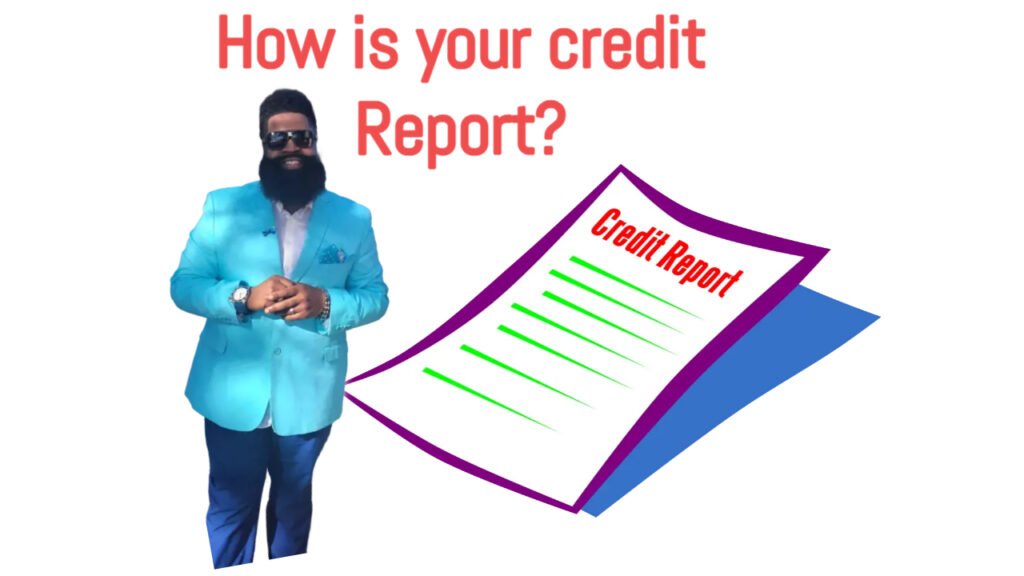
Learn how to remove hard inquiries from your credit report fast. Are you struggling to boost your credit score and wondering why it’s not improving fast enough? One reason could be hard inquiries on your credit report. A hard inquiry, also known as a hard pull, happens when a lender checks your credit during a loan or credit card application. While these checks are standard, multiple hard inquiries can lower your credit score and raise red flags for lenders. Discover legal steps to dispute unauthorised hard inquiries, protect your credit, and boost your credit score today.
So, how do you remove hard inquiries from your credit report, especially if you didn’t authorise them? Good news, it’s possible to dispute and remove unauthorised hard inquiries, and in some cases, doing so can lead to a faster credit score boost.
In this guide, you’ll learn:
- What hard inquiries are and how they affect your FICO score
- The difference between soft vs. hard inquiries
- A legal, step-by-step method to remove hard inquiries from your credit file
- How to protect your credit history from future damage
Can you remove hard inquiries from your credit report?
Yes — if they are unauthorized, you can file a credit dispute with the credit bureaus or contact the creditor directly. If valid, they will be removed within 30 days.
By the end of this article, you’ll know how to take back control of your credit health, improve your creditworthiness, and open the door to better financial opportunities.
What Are Hard Inquiries?

A hard inquiry is a request to check your credit report made by a lender or creditor when you apply for new credit. These inquiries also called hard pulls occur when you actively apply for financial products such as a credit card, auto loan, personal loan, mortgage, or even some rental agreements. Because they reflect your intent to take on new debt, they can temporarily lower your credit score.
Hard Inquiries vs. Soft Inquiries
Understanding the difference is key for protecting your credit profile
| Feature | Hard Inquiry | Soft Inquiry |
| Triggered by | Applying for credit | Pre-approval checks, personal checks |
| Affects credit score | Yes (can drop score 5–10 points) | No impact |
| Visible to lenders | Yes | No |
| Examples | Loan, credit card, mortgage apps | Checking your own credit, job checks |
https://www.capitalone.com/learn-grow/money-management/hard-soft-inquiry/
Soft inquiries are harmless and often go unnoticed. In contrast, hard credit inquiries signal potential new debt, which is why too many hard inquiries in a short time can look risky to creditors.
How Long Do Hard Inquiries Stay on Your Report?

In both the United States and United Kingdom, hard inquiries stay on your credit report for up to 24 months. However, their impact on your FICO score or Vantage Score usually fades after 12 months.
- U.S. credit bureaus (Experian, Equifax, TransUnion): Hard inquiries last 24 months, but only affect your score for 12 months
- UK credit agencies (Experian UK, Equifax UK, TransUnion UK): Typically stay for 12 months
If you’re applying for a mortgage, credit card, or auto loan, reducing the number of hard inquiries on your file can boost your approval chances and improve your credit health.
Do Hard Inquiries Affect Your Credit Score?
Yes, hard inquiries can lower your credit score, though the impact is usually minor and temporary. On average, a single hard inquiry may reduce your credit score by 5 to 10 points. However, the effect depends on your overall credit profile and how many recent inquiries you’ve had.
Answer Box Target:
A hard inquiry can lower your credit score by 5 to 10 points and stays on your report for up to 24 months, though it only affects your score for 12 months.
How Much Do Hard Inquiries Affect Your Credit?
- 1–2 hard pulls: Minor impact (5–10 points max)
- 3–6 inquiries within a few months: Bigger red flag for lenders
- 7+ inquiries: Considered high risk, especially if clustered closely
While one or two hard credit checks won’t ruin your score, too many inquiries in a short period can signal financial instability or credit-seeking behavior which lenders view as risky.
Credit Scoring Differences: U.S. vs. U.K.
| Feature | United States (FICO/VantageScore) | United Kingdom (Experian/Equifax) |
| Score impact | Drops 5–10 points per hard inquiry | Minor impact unless excessive |
| Duration on report | 2 years (score impact for 1 year) | Typically 12 months |
| Multiple inquiries bundled | Yes (e.g., auto/mortgage shopping within 45 days) | Less frequent, depends on lender reporting |
| Credit agencies | Experian, Equifax, TransUnion | Experian UK, Equifax UK, TransUnion UK |
In both countries, credit scoring models account for rate-shopping. That means if you apply for several auto loans or mortgages within a short window (typically 14–45 days), they may be treated as one inquiry, minimizing the score impact.
When Do Hard Inquiries Matter Most?
Hard inquiries become more significant when you’re about to apply for:
- 🏠 Mortgage loans
- 🚗 Auto financing
- 💳 Premium credit cards
- 🏢 Business lines of credit
In these cases, even a small credit score drop could affect interest rates, loan approval, or credit limits. If you’re planning a major financial move, avoid unnecessary applications that trigger hard pulls in the 3–6 months beforehand.
Can You Legally Remove Hard Inquiries?
Yes — you can legally remove hard inquiries from your credit report if they were unauthorized or fraudulent. However, you cannot remove legitimate hard inquiries made with your consent, even if they negatively affect your credit score.
Answer Box Target:
You can legally remove hard inquiries from your credit report if they were unauthorized or fraudulent, by disputing them with credit bureaus or the original creditor.
When Is It Possible to Remove Hard Inquiries?
| Type of Inquiry | Can You Remove It? | Action Needed |
| Unauthorized | Yes | File a dispute, submit proof |
| Fraudulent | Yes | Report identity theft |
| Authorized/Legitimate | No | Cannot remove (legal and valid) |
If you didn’t apply for credit, or if someone accessed your credit without permission, that qualifies as unauthorized. You have the right to dispute these with the credit reporting agencies.
Credit Laws That Protect You
United States – FCRA (Fair Credit Reporting Act)
The FCRA requires credit bureaus to investigate disputed items within 30 days. If a hard inquiry is found to be unauthorized or inaccurate, it must be removed.
Key Protections:
- You can request a free credit report annually from each bureau (via AnnualCreditReport.com)
- You have the right to dispute any unauthorized inquiry
- You can freeze your credit to stop further hard pulls during fraud investigations
United Kingdom – FCA (Financial Conduct Authority) & ICO (Information Commissioner’s Office)
In the UK, financial institutions are regulated by the FCA, and your data rights are protected under the UK GDPR, enforced by the ICO.
Key Protections:
- You can submit a Data Subject Access Request (DSAR) to see who accessed your credit
- You can challenge unauthorized credit checks directly with the credit reference agency (Experian UK, Equifax UK, TransUnion UK)
- Firms must prove they had your consent
Warning: Don’t Fall for Credit Repair Scams
Beware of companies that promise to “delete all inquiries” or “wipe your credit report clean.” These are often credit repair scams that use illegal tactics or file false disputes. Using them could:
- Lead to legal trouble
- Damage your credit further
- Get flagged by credit bureaus
Only dispute inaccurate or unauthorized inquiries using legal methods backed by consumer protection laws.
Step-by-Step Guide to Removing Hard Inquiries from Your Credit Report

If you’ve found hard inquiries on your credit report that you didn’t authorize, you can take action. Follow these steps to remove them legally and potentially boost your credit score.
Step 1: Get a Copy of Your Credit Report
First, check your credit report for free from trusted sources:
United States:
You’re entitled to one free report from each bureau (Experian, Equifax, TransUnion) every 12 months.
United Kingdom:
Use Experian UK, Equifax UK, or TransUnion UK to access your statutory free credit report.
Step 2: Identify Unauthorized or Suspicious Inquiries
Go through the “hard inquiries” section and look for:
- Lenders you don’t recognize
- Applications you didn’t make
- Dates that seem suspicious
Step 3: Contact the Creditor Directly
Reach out to the lender or creditor who made the inquiry and ask for proof of authorization. Use the following script:
- “Hi, I noticed a credit inquiry from your company on my report dated [insert date]. I don’t recall applying for credit with you. Can you confirm why this inquiry was made and provide written proof of my authorization?”
- If they can’t provide documentation, you can request they remove the inquiry voluntarily.
Step 4: File a Dispute with the Credit Bureaus
If the creditor doesn’t cooperate or the inquiry is clearly unauthorized, dispute it with the credit bureaus:
In the U.S.:
- Experian: Online Dispute
- Equifax: Online Dispute
- TransUnion: Online Dispute
In the U.K.:
- Experian UK: Experian Dispute
- Equifax UK: Equifax Dispute
- TransUnion UK: TransUnion Dispute
Step 5: Monitor Your Results
Credit bureaus have 30 days to investigate and respond. You’ll receive:
- A written decision
- An updated copy of your credit report if changes are made
If the inquiry is verified as unauthorized, it will be removed.
If it’s not removed and you still believe it’s fraudulent, escalate the issue by filing a complaint with:
- The Consumer Financial Protection Bureau (CFPB)
- The Information Commissioner’s Office (ICO)
How to Prevent Future Hard Inquiries

To prevent future hard inquiries on your credit report, it’s important to take proactive steps. First, always ask the lender before applying for any new credit whether the inquiry will be a hard pull or a soft pull. Hard inquiries can impact your credit score, while soft inquiries won’t. Second, consider using credit freezes or fraud alerts to protect yourself, especially if you’re concerned about identity theft. A credit freeze locks your credit report, making it inaccessible to lenders without your approval, while fraud alerts notify potential creditors to verify your identity before extending credit. Lastly, limit unnecessary credit applications. Each new application can result in a hard inquiry, so only apply for credit when absolutely necessary. If you’re shopping for loans, try to do so within a short window (typically 30-45 days) to minimize the impact of multiple inquiries. By being cautious and deliberate in your credit activities, you can protect your score and avoid unnecessary hits to your credit report
Myth vs. Fact: Common Misconceptions About Hard Inquiries
When it comes to hard inquiries and credit reports, there are many myths that can cause confusion. Here’s a breakdown of some common misconceptions and the truth behind them:
Myth 1: Hard Inquiries Stay on Your Credit Report Forever
Fact: Hard inquiries typically stay on your credit report for 12–24 months, but their impact on your score diminishes over time. After about 6 months, they have little to no effect on your credit score.
Myth 2: Hard Inquiries Always Hurt Your Credit Score Significantly
Fact: While a hard inquiry can drop your credit score by a few points (usually between 5-10 points), multiple hard inquiries in a short time or applying for several types of credit may have a larger impact. However, one or two hard inquiries won’t drastically harm your credit score in the long run.
Myth 3: Hard Inquiries Are the Same as Soft Inquiries
Fact: Hard inquiries occur when a lender checks your credit report for approval of a loan, credit card, or mortgage, and they do impact your credit score. Soft inquiries, on the other hand, happen when you check your own credit, or a lender pre-approves you for a product, and they don’t affect your score.
Myth 4: You Can’t Remove Hard Inquiries from Your Credit Report
Fact: You can remove unauthorized hard inquiries from your credit report by disputing them with the credit bureaus. If a hard inquiry was made without your consent, you can request its removal.
Myth 5: A Single Hard Inquiry Will Stop You from Getting Approved for Credit
Fact: One hard inquiry is unlikely to cause a denial of credit, especially if your overall credit score is strong. Lenders usually look at your full credit report, not just the inquiries, to make an informed decision.
Myth 6: All Hard Inquiries Are Negative
Fact: While hard inquiries do affect your credit score, they aren’t inherently “bad.” For instance, applying for a mortgage or auto loan might involve a hard inquiry, but these types of inquiries usually signal responsible borrowing. Multiple inquiries from rate shopping in a short period are typically treated as a single inquiry.
Understanding the facts behind hard inquiries can help you make informed decisions about your credit and protect your score. Avoiding common misconceptions will help you navigate your credit with more confidence.
Conclusion
Understanding hard inquiries and how they affect your credit is crucial for maintaining a healthy credit score. While hard inquiries can have a small, temporary impact on your score, they are not as harmful as many myths suggest. By knowing when they occur, how to remove unauthorized inquiries, and how to prevent future ones, you can take control of your credit report. Remember to always ask lenders whether the inquiry will be a hard or soft pull, limit unnecessary credit applications, and consider using credit freezes or fraud alerts to protect yourself from unauthorized checks. With the right knowledge and strategies, you can navigate the world of credit with confidence and make informed decisions that benefit your financial healt
Frequently Asked Questions (FAQs)
What is a hard inquiry?
A hard inquiry occurs when a lender or creditor checks your credit report as part of the decision-making process for a new credit application, such as a loan or credit card. This type of inquiry can impact your credit score, typically lowering it by 5–10 points.
How long do hard inquiries stay on my credit report?
Hard inquiries generally remain on your credit report for 12–24 months. However, their impact on your credit score typically fades after about six months.
Will a hard inquiry affect my credit score significantly?
In most cases, a hard inquiry will cause a small decrease in your credit score (around 5–10 points). Multiple hard inquiries in a short period, however, can have a more significant effect, especially if you’re applying for different types of credit.
Can I remove hard inquiries from my credit report?
Yes, you can remove unauthorized hard inquiries from your credit report. If an inquiry was made without your consent, you can dispute it with the credit bureaus. Be sure to gather evidence, such as proof of no authorization, before filing a dispute.
How can I prevent future hard inquiries?
To avoid future hard inquiries, always ask the lender whether the credit check will be a hard or soft pull. You can also place a credit freeze or fraud alert to prevent unauthorized inquiries, especially if you’re concerned about identity theft. Lastly, limit unnecessary credit applications and only apply for credit when absolutely necessary.
Do hard inquiries affect my credit score the same way in all countries?
No, credit scoring models vary by country. For example, the FICO score in the U.S. and the Experian/Equifax scoring models in the UK may treat hard inquiries slightly differently, but they all consider hard inquiries as part of your creditworthiness.
Are hard inquiries the same as soft inquiries?
No, hard inquiries are made when a lender or creditor evaluates your credit for an application and can affect your score. Soft inquiries, however, do not impact your score and typically occur when you check your own credit or when a company pre-approves you for an offer.
Can I apply for multiple loans or credit cards in a short time without damaging my credit score?
If you apply for multiple loans or credit cards within a short window (typically 30-45 days), many credit scoring models will treat these hard inquiries as a single inquiry to minimize their impact, especially if you’re rate shopping for a mortgage, auto loan, or student loan.
How do I know if an inquiry on my credit report is authorized?
Check your credit report for any inquiries from lenders or creditors you don’t recognize. If you didn’t apply for credit with that company, the inquiry may be unauthorized. In such cases, you can dispute it with the credit bureaus.
Are there any scams related to removing hard inquiries?
Yes, be cautious of companies offering to remove hard inquiries for a fee. Many of these are scams. Legitimate credit repair involves disputing inaccuracies or unauthorized inquiries directly with the credit bureaus, not paying a third-party service.
If you want to learn more helpful tips and in-depth guides on credit, finance, and improving your score, please visit our full collection of articles here.
If you want to learn more about smart budgeting strategies and how to take control of your finances, be sure to check out our detailed budgeting articles here.
Want to learn more about making money, discovering untapped side hustles, and reading real success stories? Click here to explore related articles and take your financial journey to the next level.
